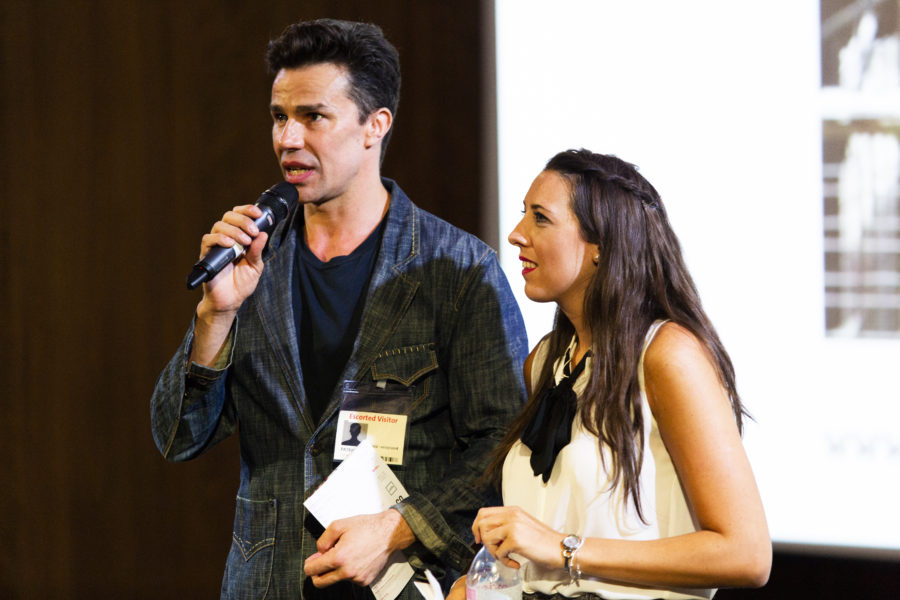Fashion sustainability is a hot topic in the media right now. You’ve seen the articles and the tips and tricks to reduce your footprint but now it feels like the conversation is turning into real action. One man who has kickstarted our activism is none other than GFX founder Patrick Duffy.
GFX, otherwise known as Global Fashion Exchange, came together with the West London Waste Authority to hold an event at London’s Victoria & Albert Museum comprising of several guest speakers at a pop-up talk and afterwards, a fashion swap; a relatively new phenomenon this side of the Atlantic but one which Mr Patrick Duffy would easily convince you to get on-board with. America and its influence, am I right? The pair joined forces to educate the audience on one of the most polluting industries in the world and how we, as consumers, can change this.
The change-maker’s Global Fashion Exchange idea was born out of his whirlwind career in New York, and after the shock surrounding the horrifying collapse of the Rana Plaza in April 2013, Patrick began a movement.
![]()

![]()
The Facts
Landfills are something we’re all aware of and they are certainly not a healthy presence on earth. Did you know it can take from nine months up to two hundred years for a garment to decompose?
The fashion industry, with a lot of research, has proved to be the fifth most polluting industry in the world. This is equal, if not more, to the agricultural industry.
Keeping a garment for nine months longer reduces emissions by 24%. Using your garment for an extra three months reduces your footprint by 5 to 10%.
In four days, a typical corporate CEO earns a garment worker’s lifetime pay.
As little as a .20c increase in a garment here would equalize pay for those workers.
Polyester which is 68% of all fibre used in fashion, is a major threat to the earth’s health. It is made using oil, hence why it poses a risk to aquatic life, but continues to be distributed more than ever due to its cheap rate.
83% of drinking water is polluted with microplastics. What is a microplastic? They’re tiny pieces of plastic less than five milimetres long that are a serious contaminent in our oceans. Microplastics can come from your clothing and in turn, can end up in our water systems.
250 million children work in the textile industry making garments or working as a helper. Do you think they’re given equal rights and pay?
_________________________________
The message of GFX and Fashion4Change.org et al was simple: let’s create a circular economy. We can do this by simple means i.e. stop buying unnecessarily, keeping our wardrobe contents for longer, attend fashion swaps, choose sustainable fabrics, research/support ethical brands and finally, use your voice. Visit FashionRevolution.org to see how you can begin to make a change.
![]()
![]()
So I ask any of you reading this, as Patrick Duffy did of every guest speaker, what are you going to do today to aid the cause? Me: read further into company policy, make sure wherever I may buy something from in the future, the garment worker gets paid a fair wage. ✔️











